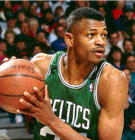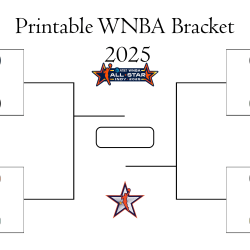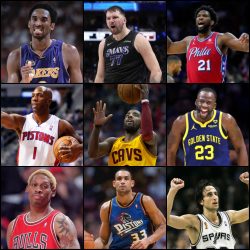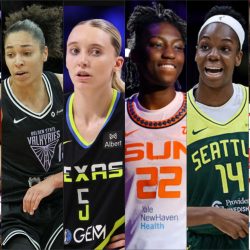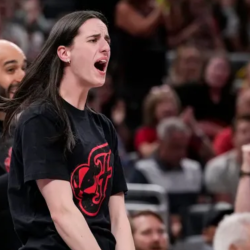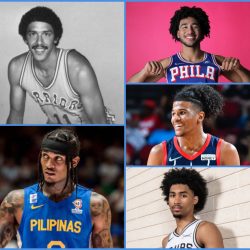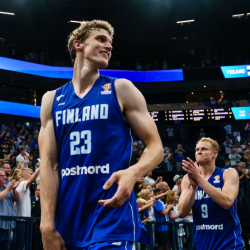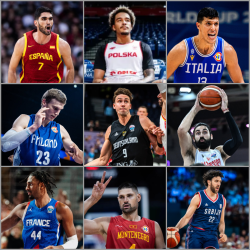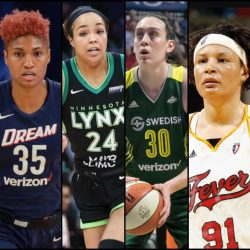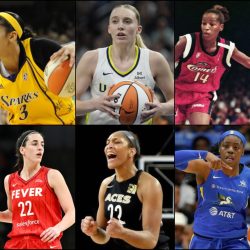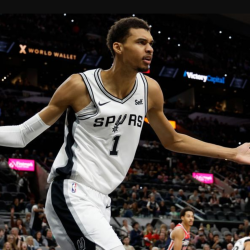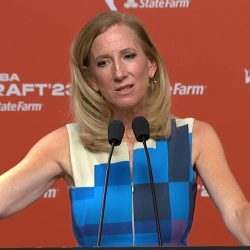The job of commissioner of any professional sports league is one of constant scrutiny. Whether it’s about officiating, scheduling, player welfare, or how the league markets itself, every decision is magnified through the lens of fans, media, and athletes. In the WNBA, where the momentum of growth collides with persistent challenges, that scrutiny has only intensified. For Cathy Engelbert, who became commissioner in 2019, recent weeks have been particularly rough. That all came to a head this week when Minnesota Lynx superstar Napheesa Collier’s fiery exit interview called out “a lack of accountability from the league office” and called the league out for having the “worst leadership in he world” all this crystallized many of the frustrations players and coaches have been voicing for years.
The spotlight on Engelbert is not unlike the pressure surrounding the wider sports industry, where even outside leagues, from European soccer to sports betting sites not on Gamstop, have learned that transparency, consistency, and credibility are essential to maintaining trust with players, fans, and regulators. When those qualities slip, the ripple effects are immediate. In the WNBA’s case, lapses in leadership have come at a time when the league should be capitalizing on unprecedented visibility from stars like Caitlin Clark, A’ja Wilson, and Breanna Stewart. Instead, Engelbert’s missteps have too often overshadowed the momentum.
Below are 15 specific mistakes, missteps, and unforced errors Engelbert has made as commissioner, incidents that together paint a picture of inconsistent leadership and questionable judgment at a pivotal moment for the WNBA.
1. Tone-Deaf Responses to Napheesa Collier
In her exit interview, Napheesa Collier recounted troubling exchanges she had with Commissioner Cathy Engelbert. When Collier raised concerns about officiating, Engelbert brushed her off with the line, “only the losers complain about the refs.” Asked about rookie salaries and why stars like Caitlin Clark and Angel Reese are locked into low league pay despite fueling unprecedented revenue, Engelbert responded that Clark should be “grateful she makes $16 million off the court.”
Perhaps most jarring, Collier also shared that Engelbert once said that the players should “on their knees thanking their lucky stars for the media rights deal that I got them.” a statement so problematic on many levels. Most important, it gave insight into how Englebert views herself. While she is the commissioner and does make tough decisions, to throw that in the face of player that represents the players shows her absolute arrogance and clearly places her above the players. Comments like these reveal a pattern of minimizing player concerns and shifting responsibility away from the league office. For a commissioner whose role is to advocate for both the growth of the game and the welfare of its athletes, dismissing issues of fairness and accountability sends the wrong message to players, fans, and sponsors alike.
2. Failing to Contact Napheesa Collier After Her Injury
When MVP runner-up Napheesa Collier suffered an injury in the playoffs, she received an outpouring of support from fellow players and coaches, but received nothing but silence from Engelbert. Collier herself noted that the only communication came from Engelbert’s aide, who downplayed physical play as a factor in injuries. For players risking their bodies nightly especially one that is both one of the league’s top players and Vice President of the WNBPA the WNBA’s players union, that lack of empathy doesn’t just sting deeply, it shows an absolute poor people skills and says a lot about Englebert’s mindset as the leader of the WNBA.
3. Continued Downplaying Officiating Complaints
If there’s one issue the WNBA can all agree on is the inconsistent and poor quality of the officiating. To Cathy? She basically shrugged it off. Asked about officiating inconsistency an issue that stars, coaches, and fans have hammered all season. Engelbert brushed it aside saying: “No winning team ever complains about officiating; no losing team ever doesn’t complain.” To many, that sounded dismissive of a real problem undermining game quality and player safety.
4. Failing to Protect Officiating Talent
Top WNBA referees are often plucked by the NBA, leaving the women’s game with a thinner talent pool. This creates a revolving door effect just as officials gain the experience to manage the speed, physicality, and unique dynamics of the W, they are recruited upward, incentivized by higher pay and prestige in the men’s league. Players and analysts frequently note that officiating is called more tightly in college and differently in the NBA, yet the WNBA has failed to establish its own consistent identity. The result is a frustrating lack of clarity for players, where one night off-ball contact is ignored and the next it’s whistled every possession. Engelbert has not outlined a long-term plan for how the league will recruit, train, or retain elite officiating talent, even as coaches like Cheryl Reeve and Becky Hammon publicly demand higher standards. Without a pipeline or investment in development, officiating remains one of the WNBA’s most glaring structural weaknesses, undermining both player safety and fan trust.
5. Wearing a New York Skyline Dress to the WNBA Finals
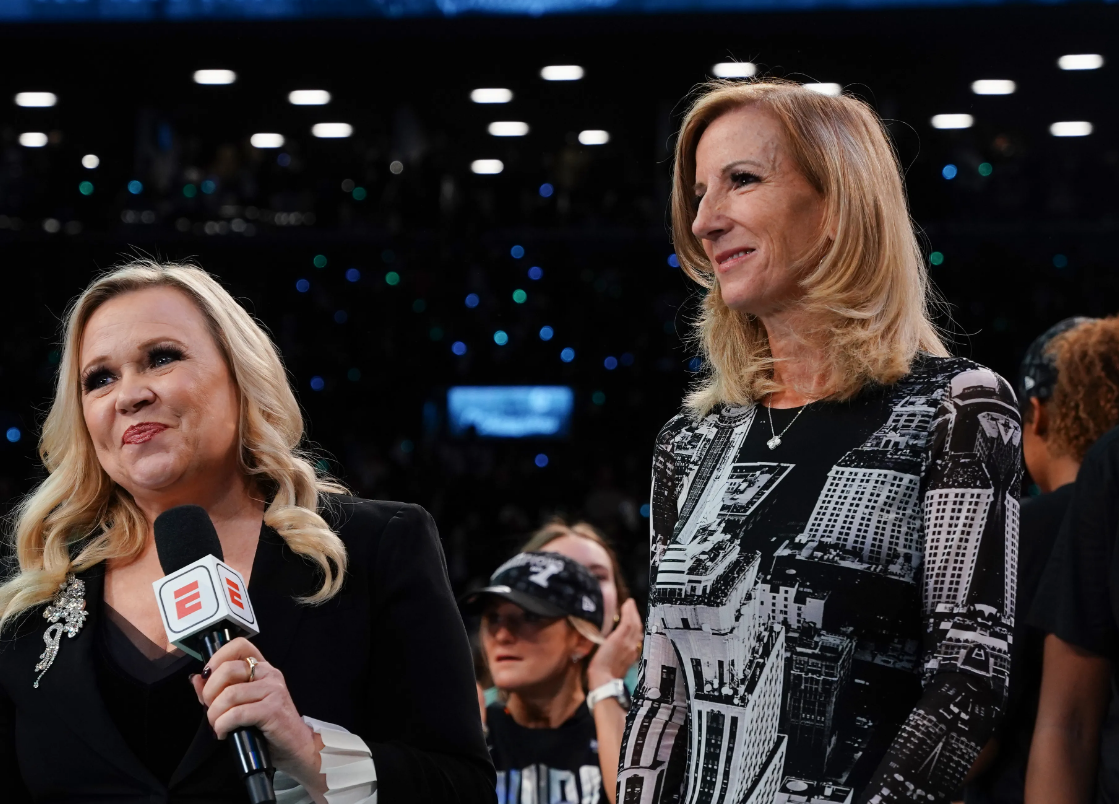
At the 2024 WNBA Finals, Engelbert wore a dress patterned with the New York City skyline while presenting the championship trophy, a gesture interpreted by many as showing bias toward the New York Liberty. Even if unintentional, optics matter. Commissioners are expected to project neutrality, not play favorites. The moment immediately drew backlash from fans of opposing teams, especially given that the Liberty were finalists. Critics argued that the choice of attire fed into a long-standing perception that big-market teams receive more attention and favoritism from the league office. In a sport still fighting for equal respect and credibility, even seemingly small missteps can erode trust. For Engelbert, the symbolism of the moment overshadowed what should have been a purely celebratory night for the players and the league.
6. Ignoring Elena Delle Donne’s Retirement
Two-time MVP Elena Delle Donne, one of the most recognizable and marketable faces in league history, retired without so much as a phone call from the commissioner. That silence was jarring. Delle Donne wasn’t just another All-Star she was a six-time All-Star, a WNBA champion with the Washington Mystics in 2019, the first player in league history to join the exclusive 50-40-90 shooting club, and one of only a handful of women’s players to have won both MVP and Finals MVP honors. She played through multiple injuries and even a chronic back condition, sacrificing her body while still maintaining elite production and helping elevate the league’s visibility during years when mainstream coverage was still inconsistent.
Elena Delle Donne went to her Instagram story and said “I’m still not sure if Cathy knows I retired. Heard from everyone but her” pic.twitter.com/DOzXW4Xbpm
— WNBA Got Game (@wnbagotgame) September 30, 2025
For a player who helped carry the WNBA through those crucial visibility years, someone who became a household name alongside Sue Bird, Diana Taurasi, and Maya Moore, the absence of acknowledgment from Engelbert looked not only tone-deaf but dismissive. Players, fans, and media alike expected the commissioner to honor Delle Donne’s retirement with the gravity it deserved. Instead, the silence reinforced a narrative that league leadership takes its greatest stars for granted, even those who left an undeniable mark on the WNBA’s growth.
7. Mishandling Racism and Fan Abuse Concerns
When Caitlin Clark, Angel Reese, and other players became targets of racist and sexist attacks online, Engelbert’s initial response was tepid. She treated it as “noise” rather than an urgent league issue. Only after significant backlash from the WNBPA did she issue an apology, admitting her answer “missed the mark.” By downplaying the abuse in the first place, Engelbert signaled a lack of urgency on a matter that directly affects player safety, mental health, and public perception of the league. Players wanted leadership to set a zero-tolerance standard, not a shrug. The delay in addressing the issue reinforced the perception that the commissioner reacts only when pressure mounts, rather than taking proactive steps to protect her athletes. For a league that markets itself on empowerment and inclusivity, the slow response felt out of step with its core values.
8. Mispronouncing Coach of the Year Natalie Nakase’s Name
An awkward moment during the press conference. WNBA commissioner Cathy Engelbert mispronounces Natalie Nakase’s last name during her speech. pic.twitter.com/cUxlQzZ8Ba
— Joseph Dycus (@joseph_dycus) September 18, 2025
Not the worst offense, but one of the recent unforced errors from Engelbert happened during a high-profile press conference. Engelbert mispronounced the last name of Natalie Nakase, who had just won Coach of the Year. What should have been a celebratory moment for one of the league’s brightest coaching stars turned into a foot-in-mouth error that came across as careless. At a minimum, league leadership should know the correct pronunciation of its award winners. It wasn’t just a slip, it reinforced the perception that Engelbert can feel out of touch with the people driving the league forward. For players and coaches who constantly fight for recognition, something as basic as getting their names right matters.
9. Dismissing Star Revenue Drivers
When asked why Clark, Reese, and other rookies make so little on their first WNBA contracts despite driving massive ratings and record-breaking viewership, Engelbert reportedly said Clark should be “grateful” for the platform the WNBA provides. The remark not only ignored the fact that Clark had already secured multimillion-dollar endorsement deals with Nike, State Farm, Buick, and Gatorade before she ever played a WNBA game, but it also revealed a troubling underestimation of player power in the modern era. Instead of acknowledging the obvious truth that the league’s stars are underpaid as the engine of its growth, Engelbert’s response leaned on the same “sustainability” buzzword the league has used to deflect player demands for pay equity.
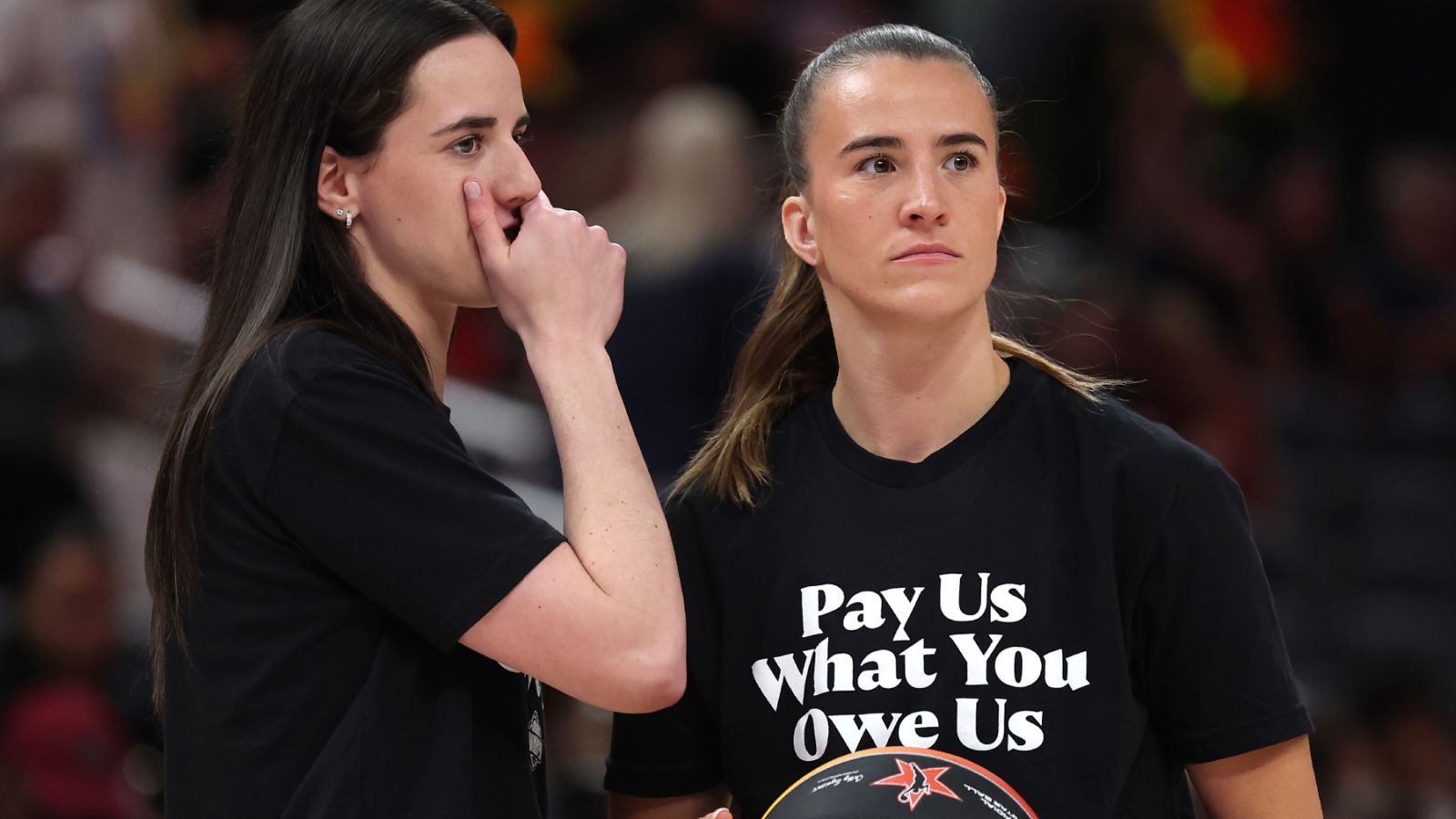
The reality is that rookie salaries, capped under the current CBA, remain far below what their impact justifies, especially when rookies like Clark and Reese are generating sellouts, television spikes, and social media visibility on par with top NBA content. While the league has pointed to charter flights and expanded marketing as proof of reinvestment, players argue that progress has been piecemeal and reactive, not visionary. Rather than dismissing concerns, leadership could be pushing harder for new broadcast deals, creative revenue sharing, and CBA reforms that align compensation with market value. Engelbert’s “grateful” comment crystallized a larger frustration: that instead of leaning into this golden era of interest, the WNBA risks minimizing the very players who are making it possible.
10. Englebert Publicly Booed at WNBA All-Star Over Pay Issues
During All-Star weekend, Engelbert was booed by fans while chants of “Pay them!” rang out. The moment underscored both growing public awareness of pay disparity and frustration with her cautious, corporate approach to labor negotiations. Rather than seizing the opportunity to address the crowd or publicly acknowledge the message, Engelbert largely ignored it, which only deepened the perception that she’s out of touch with the players and fans alike. For many, the boos symbolized a disconnect between the commissioner’s rhetoric about “growth” and the reality of stagnant salaries. The fact that this unfolded on one of the league’s biggest showcase weekends amplified the embarrassment and gave her critics more ammunition.
11. Poor Public Messaging and Self-Promotion
Engelbert has published pieces in outlets like Harvard Business Review congratulating herself on WNBA growth, while downplaying ongoing crises. For critics, this comes across as tone-deaf, self-congratulation when the league’s most visible stars are openly questioning its leadership.
12. Deflecting Equity With “Sustainability”
Players have grown weary of Engelbert’s buzzword “sustainability,” which she routinely uses to justify why salaries can’t be higher. Collier and others argue the real unsustainable practice is ignoring officiating, player safety, and growth opportunities. Sustainability has become shorthand for excuses.
13. Weak Public Acknowledgment of Player Concerns
Repeatedly, players and coaches say they don’t feel heard. Even when there may be behind-the-scenes conversations, Engelbert rarely makes public statements validating those concerns. For example, when Collier and others aired serious criticisms about officiating, league accountability, and player compensation, Engelbert’s public responses have been limited to carefully worded press releases or statements of “disappointment” rather than full acknowledgment of the issues raised. In one notable instance, Caitlin Clark revealed she had not heard directly from Engelbert after Collier’s statements—even though Clark publicly affirmed Collier’s critiques as “valid.” That lack of visible empathy fuels mistrust: it creates the sense that leadership is insulated and unresponsive, rather than part of a working partnership with those on the court.
Collier’s blunt exit interview may be remembered as a pivotal moment in league history. Engelbert’s tenure has had successes, expansion teams, better media deals, growing ratings, but her string of unforced errors is eroding trust at the exact moment the WNBA is entering a golden opportunity with stars like Clark, Angel Reese, and Breanna Stewart. The bottom line: leadership in women’s sports requires not just business savvy, but also accountability, empathy, and credibility with players. Engelbert’s critics argue she has fallen short on all three. And in a league where momentum and perception matter as much as wins and losses, those mistakes are piling up fast.
